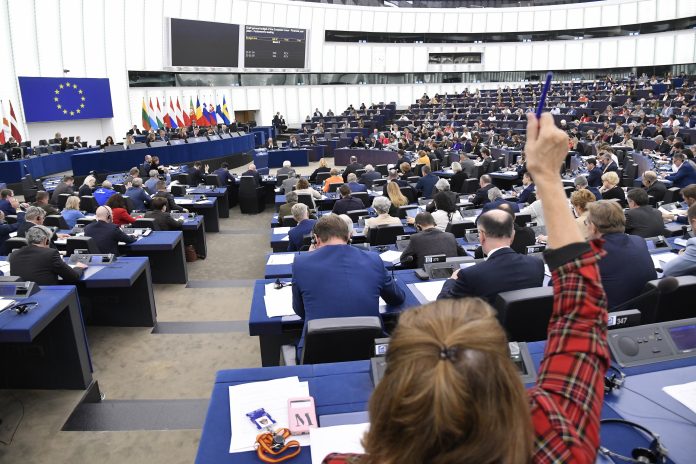MEPs demand an EU budget for 2023 that addresses the consequences of the war in Ukraine and the pandemic recovery process more effectively.
Parliament voted on Wednesday on its position on the 2023 EU budget. MEPs reversed almost all cuts made by the Council (over €1.6 billion) and thereby restored the draft budget to the level originally proposed by the Commission in the budget lines concerned.
In addition, MEPs increased funding for the following priorities:
Consequences of the war in Ukraine
With a total of €853 million added to the Commission’s draft budget, MEPs bolstered funding for initiatives that support young refugees through Erasmus+, the European Solidarity Corps, Ukrainian researchers through actions such as Marie Curie under Horizon Europe, and boosted programmes including:
- humanitarian aidby €250 million,
- the Asylum, Migration and Integration Fundwith a €100 million top-up,
- the Border Management and Visa Instrumentwith €25 million,
- the “Neighbourhood, Development and International Cooperation Instrument” (NDICI – Global Europe) for the EU’s southern and eastern neighbourhood with €162 million, and
- the European Defence Fund and Military Mobility with €80 million.
Energy and climate
With an additional €533 million, MEPs want to increase EU energy independence and support citizens and SMEs with their high energy bills, while backing the green transition and biodiversity. Programmes supported include:
- the Horizon Europeresearch programme,
- the Connecting Europe Facility, which funds the construction of high-quality and sustainable trans-European transport and energy networks,
- the environment and climate action LIFE programme,
- the “Global Challenges” Programme.
The lessons of the pandemic: health, better preparedness, culture and values
MEPs restored the €200 million cut by the Council to the EU4Health programme and added €25 million, as the COVID-19 pandemic is not yet over, resulting in a need to support national health systems to become more resilient. Further priorities include:
- the EU Civil Protection Mechanism (UCPM),
- the Creative Europe Programme,
- the Digital Europe Programme,
- the Rights and Values programme and the European Public Prosecutor’s Office (EPPO).
The figures for the different programmes boosted by Parliament can be found here.
An accompanying resolution, adopted with 421 against 137 votes and 82 abstentions, summarises Parliament’s position.
“Today we voted in the Parliament on a budget that prioritises peace, energy security and faster economic recovery. When Russia goes low, we go high. The Parliament has requested additional funds in the 2023 EU budget to help our citizens during the energy crisis, to help tackle the consequences of the war in Ukraine and help relaunch our economy. The EU budget alone will not suffice to deal with the magnitude of the crises; this is why we need an MFF revision urgently,” said Nicolae Ştefănuță (RENEW, RO), general rapporteur for the EU budget 2023 (for section III – Commission).
“The other institutions’ 2023 budget should be prudent and have one clear focus: cybersecurity. Our EU budget has to clearly respond to the hybrid threat caused by Russia’s war of aggression,” said Niclas Herbst (EPP, DE), rapporteur for the other sections.
With this vote, Parliament has set the overall level of commitment appropriations for 2023 (pledges to pay) at €187.3 billion, representing an increase of €1.7 billion compared to the draft budget proposed by the Commission. It has set the overall level of payment appropriations at €167.6 billion.
The vote launches three weeks of “conciliation” talks with the Council, with the aim of reaching a deal for next year’s budget, which then has to be voted on by Parliament and signed by its President.

